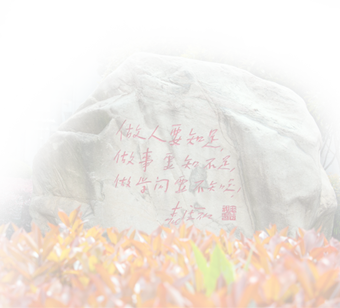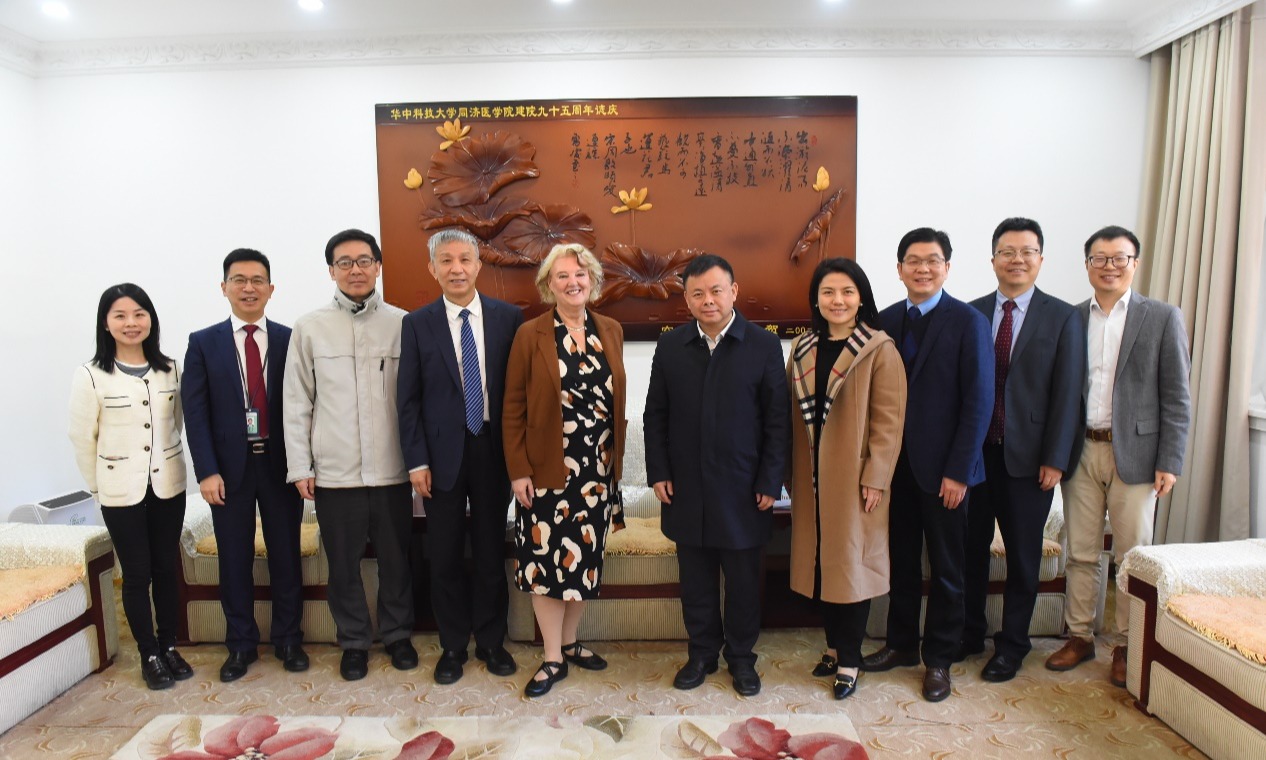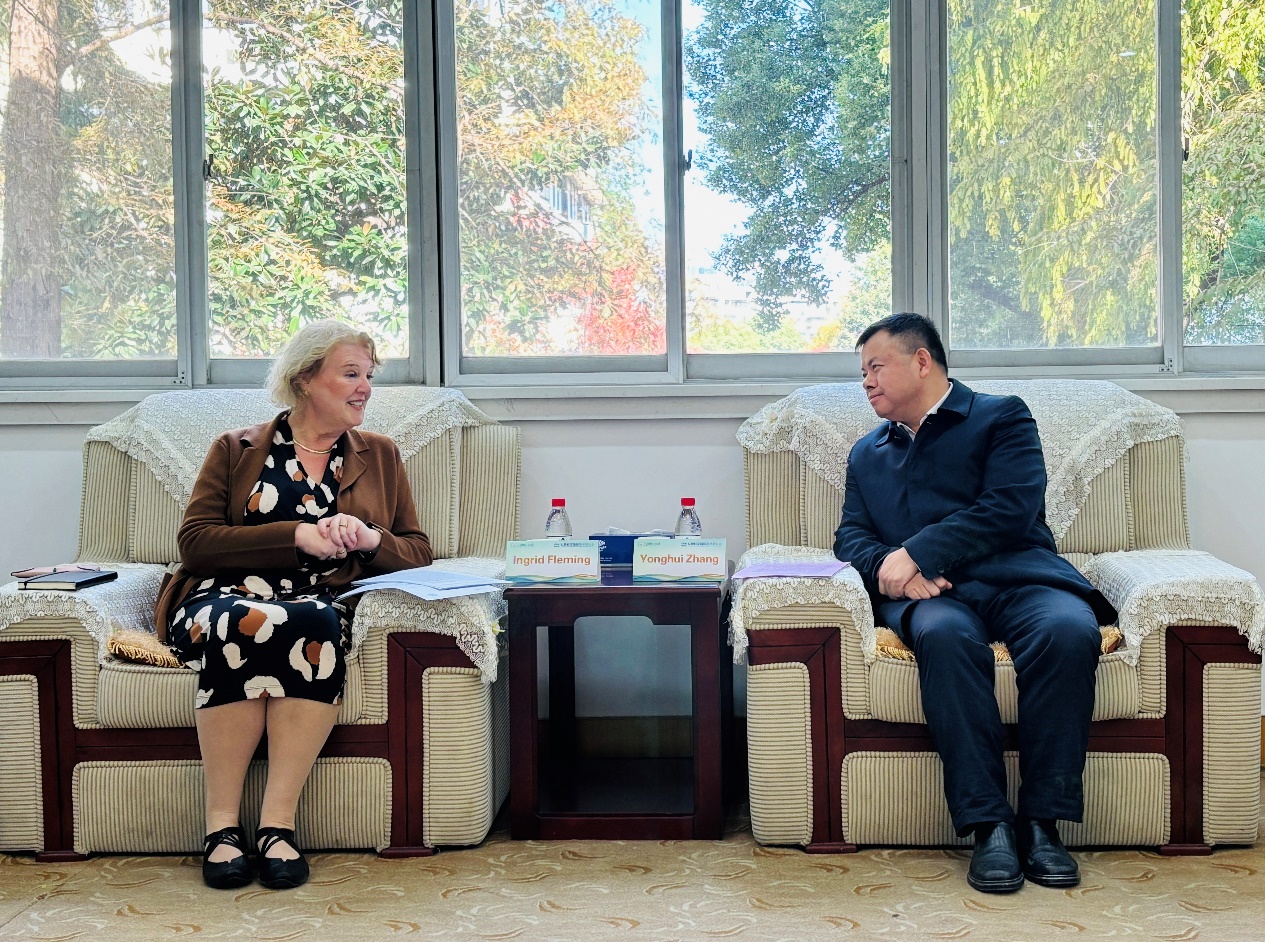


On November 27th, Prof. Ingrid Fleming, a member of the German Academy of Sciences, academician of the European Academy of Sciences, the head of the Center for Molecular Medicine and the director of the Institute for Vascular Signaling at the University of Frankfurt visited the HUST. Vice President ZHANG Yonghui met with her, Dr. CHEN Jie, Prof. CHEN Gang, Mr. QIN Xuanbin, Prof. WANG Weimin, Prof. HU Qinghua and Prof. WANG Daowen participated in the meeting. They discussed the construction of “Sino-German Cardiopulmonary Science Laboratory”. The meeting was chaired by Prof. HU Jiong.

On behalf of HUST, Prof. ZHANG Yonghui firstly welcomed Prof.Fleming and expressed his heartfelt gratitude to her for her long-term support for the cooperation between the two faculties. He mentioned that cardiopulmonary diseases are still one of the leading causes of death across the globe. In this context, the School of Basic Medical Sciences of Tongji Medical College (TJMC) of HUST, the University of Frankfurt and the German National Heart and Lung Institute (CPI) are teaming up with each other in the field of cardiopulmonary sciences. Such cooperation not only continues the time-honored exchange between TJMC and the University of Frankfurt, but also integrates the resources of two parties. The concerted effort by the two side will better address the issues of cardiopulmonary diseases confronted by the whole humanity. He also introduced the Junshan International Campus of HUST, and said that it will provide new opportunities for cooperation between the two sides. He hoped that the visit of Prof. Fleming would be an opportunity to reach consensus, enhance mutual trust, and for two sides to work together to work the platform into a world-class cardiopulmonary research base, a paradigm institute for training top talents, and a link for exchanges between China and Germany.
Prof. Fleming extended her thanks to the hospitality of HUST, which always makes her feel at home. She mentioned that the German National Heart and Lung Institute (CPI) is a national research group of excellence jointly established by three institutes, namely, the University of Frankfurt, the University of Giessen and the Max-Planck-Institute for Heart and Lung Research in 2006. CPI has been approved for three consecutive times by the German Initiative of Excellence Program and has received nearly 300 million euros of grants, and is one of the top research centers of international cardiopulmonary research. CPI is willing to have more international partners in the new funding period to enhance the global influence of both sides. She said that the establishment of the Sino-German Cardiopulmonary Science Laboratory is an important step forward to the goal of internationalization. The first International Symposium on Cardiopulmonary Science organized by the two universities one year after the establishment of the Joint Laboratory is a testimony to the milestone results of the bilateral cooperation, and we are looking forward to further cooperation in teaching and research.

Both sides further discussed how to promote the construction of Sino-German Cardiopulmonary Science Laboratory, and preliminarily reached a broad consensus on future cooperation, and further cooperation will cover scientific research, importing of talents, mutual visits, student exchanges, joint training of postgraduates, among others.
In 2018 and 2023, the School of Basic Medical Sciences (SBMS) invited Prof. Fleming as a guest professor and adviser. With the promotion of SBMS and Prof. Fleming, three intercollegiate cooperation agreements have been signed between the two universities, and the two sides are maintaining regular mutual visits and academic exchanges. In November 2023, the activation of “Sino-German Cardiopulmonary Science Laboratory”, jointly operated by the School of Basic Medical Sciences of TJMC, the University of Frankfurt, CPI of Germany, was announced at the opening ceremony of the International Industry-University-Research Cooperation Conference (Hubei) sponsored by the Minstry of Eduction of China. On basis of such cooperation, the “International Scientific and Technological Cooperation Base of Cardiopulmonary Research and Diagnostic and Treatment Technology” involving the affiliated Union Hospital and Tongji Hospital were approved by Hubei Provincial authorities.